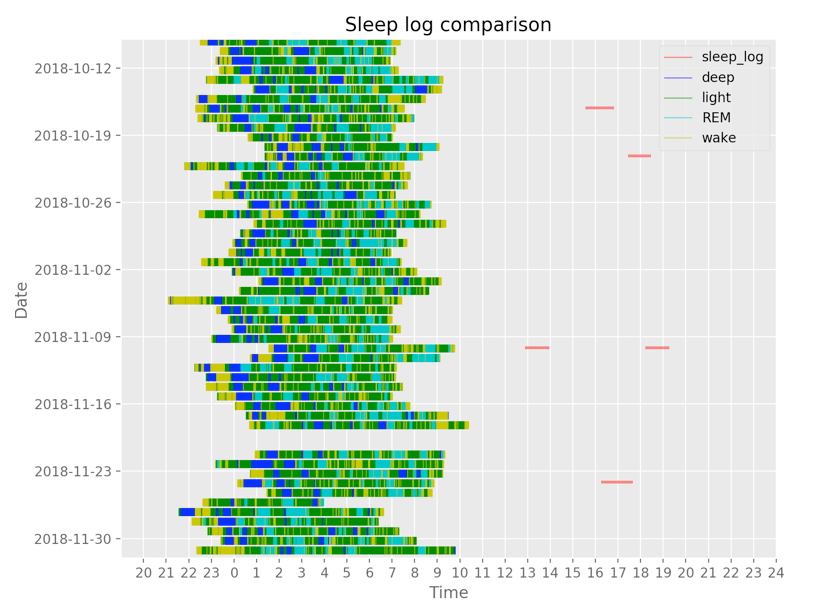Does a New Mattress Help You Sleep Better? I Tried It so You Can Save the Money
Surely my sleep game could only get better with the help of this tool that, thanks to a complex ergonomic system, promised to support my often achy-by-day’s-end body at 33 key points, right? And with its temperature-regulation abilities, I assumed I'd be all “night sweats who?” in no time. Excited to be at the precipice of what I was certain would be a personal REM revolution, I thought about conducting a Princess and the Pea-style experiment to test the Wave’s five (five!) layers of foam. But then I thought better—instead, I’d wear my Fitbit Charge 3 (gifted to me by Fitbit) to bed each night to track my sleep data for my final weeks on my old mattress and first few on my new one.

{{post.sponsorText}}
Using a combination of heart-rate variability and movement tracking, Fitbit's Sleep Stages and Sleep Insights function gathers data about shut-eye quality (awake, REM, light, deep). The science isn’t perfect: For example, a few times, my device reported that I experienced an hour of light sleep around 9 p.m. on a weeknight, when in reality, I was just Zenning out on the couch, catching up on The Real Housewives of Orange County. I wasn’t sleeping, but since my heart rate was low, and I wasn’t physically moving (at all, LOL), it thought I was asleep. Still, since I wore the device each night, despite lacking total scientific precision, it served as its own control.
"You actually slept less after changing mattresses. Other factors are more likely to impact sleep than a mattress, like stress and a regular schedule." —Conor Heneghan, director of research, algorithms at Fitbit
Below is a visual distillation of my sleep data before and after October 27, 2018—my first date with the Wave. After the switch, I felt more rested, and I was really enjoying snoozing sans gravitational pull toward the center of the bed, but upon first glance at the stats, two immediate conclusions came to mind: I'm clearly one who catches up on sleep over the weekend (as indicated by the two days a week I sleep in much later), and it doesn't appear that I slept longer or better on my new mattress. Conor Heneghan, Fitbit's director of research, algorithms, confirmed that hunch.

"You actually slept less after changing mattresses," Heneghan says with a laugh, adding that difference was minimal and also that he would have been surprised if there were a significant discrepancy in data. "Other factors are more likely to impact sleep than a mattress, like stress and a regular schedule." In fact, a recent survey of nearly 1,500 Well+Good readers found that stress keeps 65 percent of people up at night, whereas only 16 percent of respondents pointed to an uncomfortable sleep environment. And nothing in my life changed during this time—including my bedtime and wakeup time—except the mattress itself, so it makes sense that my sleep stats wouldn't be wildly different. Furthermore, when stacked against other women in my age group (Fitbit has a corpus of 7.5 billion nights of sleep data to cull from) both before and after changing mattresses, I came out to be oh-so average.
I slept an average of 450 nightly minutes (7.5 hours) on my old mattress and 440 (7.3 hours) on the new; the average for my demographic is 443 minutes (7.4 hours). My numbers for REM and deep sleep were also slightly lower after the mattress switch, but still within the norm for my demo. It does bear mentioning that I spent an average of three fewer minutes awake per night after getting the Wave—perhaps thanks to no dip in the middle of the bed shaking me from my slumber. I'd call that a win.
"A quality mattress is critical to a good night’s sleep, but is just one of many factors that impacts your rest." —Jeff Chapin, Casper's chief product officer
While I didn't sleep more, I certainly felt like the mattress was effective—and research points to my mind-set being an effective indicator of restfulness. "Believing you had a good night of sleep seems to help people function better during the day," writes psychologist and sleep expert John Cline, PhD, in Psychology Today. Perhaps it was the comfort uptick alone afforded to me by the Wave that made me assume I was sleeping better—and if so, maybe it doesn't matter that the placebo effect at work here doesn't actually apply toward my REM bank.
Even Jeff Chapin, Casper's chief product officer, caveats that the bed itself is just one component of many to take into account for sleep health. "A quality mattress is critical to a good night’s sleep, but is just one of many factors that impacts your rest," he tells me via email. "Your entire sleep setup—including mattresses, pillows, sheets, bed frames—as well as environmental factors, like light and sound, affect the quality of your sleep. Stress levels, emotional state, and mental state will also impact your ability to fall asleep and get good quality sleep."
So though my REM may not report growth dividends after swapping mattresses, I much prefer crawling into my super-cozy, comfortable, and completely-devoid-of-dips mattress than the older model. Bottom line: The new mattress is not statistically worth it, but has it improved my perception of my quality of life? Absolutely. Plus, my husband is into getting fewer kicks to the shin around the 4 a.m.
And for the record, it's not just us: Sleeping next to your S.O. is hard, especially due to these five reasons. Some might even call snoring public enemy number one to relationships.
Loading More Posts...